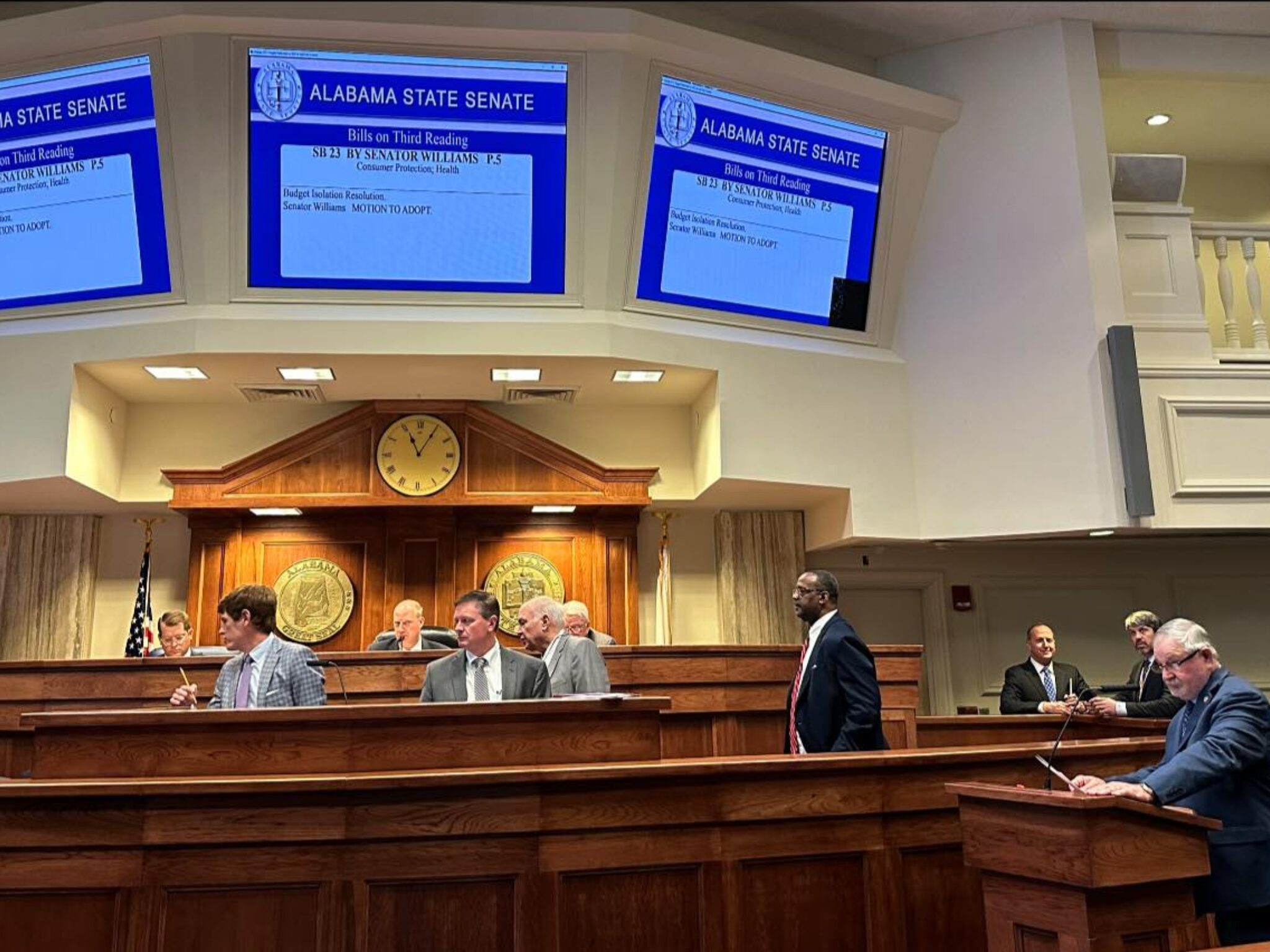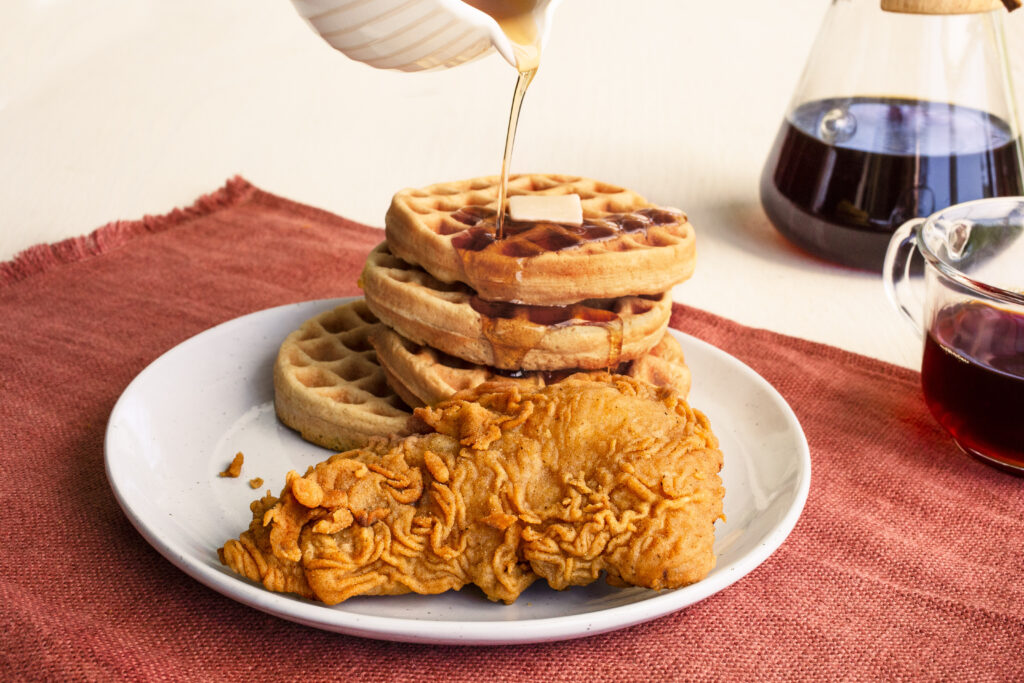Alabama Becomes Second US State to Ban Cultivated Meat with A Misinformation-Fuelled Bill
6 Mins Read
Days after Florida enacted a ban on cultivated meat, Alabama has become the second US state to do so – just as food safety regulators announced plans to clarify the regulation of these foods.
“Take your fake meat elsewhere. We’re not doing that…”
You’d be forgiven to think that this was a verbatim statement by Florida governor Ron DeSantis, who last week criminalised the production or sale of cultivated meat in his state.
While DeSantis did say something like that in relation to Florida, add the words “in Alabama” at the end, and you’ve got yourself a repackaged quote from Alabama senator Jack Williams, who had proposed an identical ban with an identical rhetoric that has now had an identical outcome.
The Cotton State has followed its neighbour by making it a Class C misdemeanour to manufacture, sell or distribute cultivated meat, after governor Kay Ivey signed the bill into law earlier this week. This means anybody in violation of this could face a fine of $500 and up to three months in jail, and have their license revoked (if it’s a food establishment).
“This law will strengthen our livestock and poultry industry by preventing lab-cultured cells from being sold in Alabama,” said representative Jack Crawford, who carried the bill in the House. “To our consumers, the quality and safety of our agricultural products are of the utmost importance, and these lab-grown protein cells can’t be assured to be safe.”
That last bit implies one of two things – either Crawford is intentionally spreading misinformation, or he genuinely believes that the USDA and FDA clearing cultivated meat as safe to eat is not enough of a confirmation.
Built on dangerous misinformation

The bill was first proposed in February by Wiliams, a cattle farmer, who said: “If you were on Mars, you have to grow what you have to grow to eat. The problem with this is we have plenty of food in the state. We have plenty of cattle and chicken. There’s no reason for us to bring this product in here.” That was a statement completely ignorant of the fact that Alabama is the fourth-poorest state in the country, with a sixth of adults and nearly a quarter of children facing food insecurity. But sure, there’s enough chicken.
Although, is there? The state is home to a poultry farm that culled nearly 48,000 chickens due to a pathogenic avian flu just six months ago, a threat that continues to loom in animals that humans end up eating.
“Anything that is artificial and not to do with our animals comes up on my radar. I don’t want Alabamians eating that,” Williams said, disregarding the fact that cultivated meat originates from animal cells, and overstepping boundaries to tell people what they can or can’t eat.
These statements represent the widespread misinformation that has fuelled Alabama’s ban. When introducing the bill for a reading in the House, Crawford attempted to explain how these foods are made. “They throw a couple of animal cells in there, throw some chemicals in there, some ingredients and boom: You get a chicken leg out.”
It got laughs, but nobody in the House questioned how it really works. Even if Crawford’s version of things is true – which, surprise, it isn’t – it just sounds like how most industrially farmed meat is made, really.
But perhaps the biggest sign that misinformation is driving this ban is the support from Freedom Health Alabama, a group that has previously campaigned against vaccine mandates and masks, and refers to cultivated meat as “Franken-meat”. No more credible stamp than one from an anti-vaxxer, eh?
The bill garnered overwhelming support throughout its legislative passage, with 31 senators voting for it, and nobody opposing it. In the House, the final tally was 85 in favour, 14 against. There was one change made before sending it to Ivey’s desk – the house decided against including a stipulation that would have prohibited government agencies and universities from conducting research on these products.
Before being passed in the House, it did also reach a brief hiccup when House speaker Nathaniel Ledbetter declined to bring it to the floor for a vote, as part of a larger conflict between the Senate and the House. However, the impasse passed, and from October 1, you’ll be committing a crime if you sell cultivated meat in Alabama.
‘We don’t even do this with cigarettes’

“These folks are throwing a couple of animal cells in there with some chemicals and calling it meat. Alabamians want to know what they are eating, and we have no idea what is in this stuff or how it will affect us,” said Williams. “Meat comes from livestock raised by hardworking farmers and ranchers, not from a petri dish grown by scientists. We are protecting our farmers and the integrity of American agriculture.”
Speaking to Green Queen after the Florida ban, Pepin Tuma, legislative director at alternative protein think tank the Good Food Institute, said: “American-made cultivated meat has been rigorously inspected and ruled safe by the USDA and FDA – so why are politicians with no experience in food safety interfering where they don’t belong?”
The two regulatory bodies authorised California’s Upside Foods and Eat Just to sell their cultivated chicken last year, after a rigorous, months-long process. And they’ve now announced plans to “clarify and provide guidance on the regulation of cultured animal cell foods”, having had discussions about market and technical developments and the inspection of cultivated meat facilities. The USDA will now propose new labelling regulations for cultivated meat this year.
“Some of America’s largest meat companies have been early investors in cultivated meat. They recognise cultivated meat’s potential to complement conventional meat production, improve supply chain resilience, and ensure American’s access to meat as global demand for animal protein is projected to double by 2050,” Sean Edgett, Upside Foods’ chief legal officer, said following the Florida ban.
Upside Foods has subsequently launched a petition in response to Florida’s ban, asking people to “tell politicians that they should not control what you eat, and support food innovation for a brighter future”. Similar proposals are being debated in various other states, including Arizona, Wisconsin, Texas, Nebraska and Tennessee.
Cathy Ballenger-Apolo, one of the petition’s supporters, wrote: “If there is a zero-kill way to provide meat to the population who consumes it, a way that is wholesome, natural, and healthy, why not utilise it?”
Williams himself has recognised the potential of cultivated meat, previously saying: “If that’s what we have to survive, I would re-entertain looking at something,” said Williams. “But I think there needs to be a lot of test work done on it.”
House representative Marilyn Lands – a Democrat in the Republican majority state – best summed up the idiosyncrasy of the law. “I thought conservatives, Republicans, were all about letting the free market do its work,” she said during a House session. “And I don’t believe we should be dictating what people can eat, or criminalise people who sell or service certain foods even when they’ve received approval from the federal government.
“This makes no sense to me. We don’t even do this with cigarettes.”




